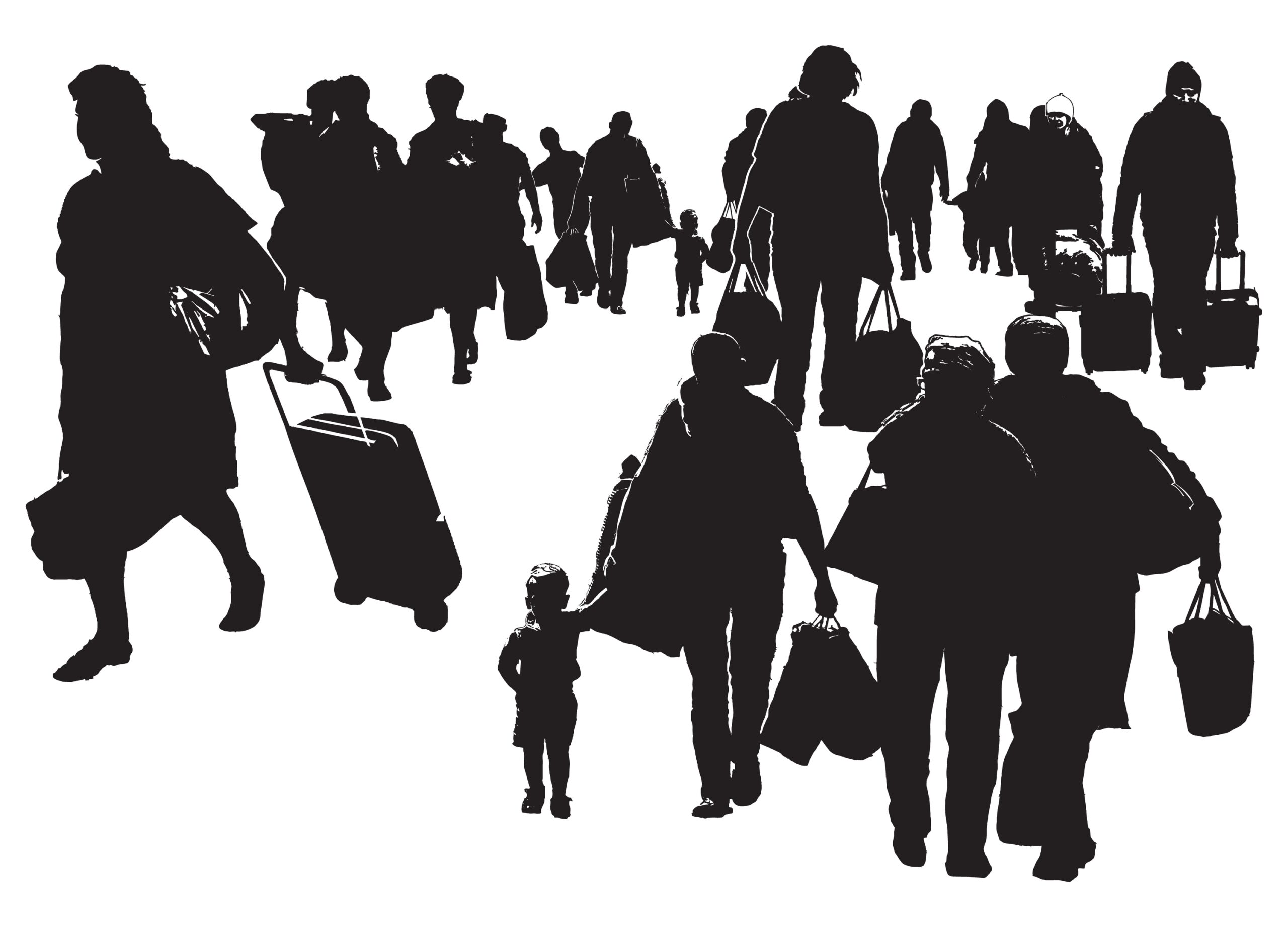
To Daniel Brooks, an evolutionary biologist, the time has passed for the world to be preoccupied with finding a technological solution to climate change. He sees survivability as the pressing matter, a need to prepare now for a vast migration likely to happen as climate disasters start to drive Americans inland from the coasts by 2050.
To Hillary Brown, a professor emerita of architecture and former director of the Urban Sustainability Program at the City College of New York, this creates an opportunity for today’s dying Midwestern communities to revitalize and become technological meccas that draw climate migrants.
The long-time colleagues are working to bring their message to communities in states like Nebraska, where towns are seeking revitalization due to job loss and an ebbing population. As they see it, climate change represents an opportunity for rural inland communities to reinvent themselves — to become sought-out locales — if they get working on it now.
“How do we make energy, water, and food-autonomous communities? And could those be the future of places that people would be drawn to, people who are dislodged?” Brown said in a recent interview.
Brooks, a professor emeritus of ecology and evolutionary biology at the University of Toronto, pointed to examples of how species survived climate change in the past. He said we have an advantage this time because we are forewarned and can create a “managed retreat” from the big coastal cities over the next 25 years.
“Evolutionary biologists know that when the local conditions change so that they’re not survivable, species that move away are the ones that survive. The species that stay in place — they can’t escape — are the ones that go extinct,” he said. “There’s not going to be a magic technological breakthrough that’s going to allow us to continue doing what we’re doing forever. By the same token, we have a lot of technological knowledge that could allow us to survive if we used it.”
The role of distributed energy
Brooks said distributed energy plays a large role in their vision, specifically small energy systems, like solar and storage, that can serve individual communities but also be networked together, in essence, a decentralized grid. He fears that large grids will be prone to collapse during a period of disruption.
“We’re not survivalists, saying build a dungeon and go underground forever. What we need is small communities that are fairly self-sufficient. They would have their own power grid, for example, solar farms or wind farms or whatever. But they would also be cooperating with other similar communities as a network of small communities,” said Brooks, who is a co-author of the book, “A Darwinian Survival Guide: Hope for the Twenty-First Century.
“We have to get small to survive this big collapse, and that’s actually been the whole history when life on this planet has survived climate change events,” he said.
Learn about all things distributed energy. Sign up for the free Energy Changemakers Newsletter.
It’s not only an influx of people that communities must prepare for. Business and industry will need to be relocated. Again, Brooks sees a need to start small and build up.
“We need to think not in terms of how can we save the big automobile factories, but what is the smallest factory we can have where we could maintain and produce new electric vehicles…realizing we can scale things later,” he said.
Steps communities can take to become climate migrant meccas
So, how can rural cities and towns start recasting themselves now in preparation for climate migration? The distributed energy technology they need is already available. However, funding—and local leadership—aren’t always easy to come by.
Brown would like to see the federal government create funding for small communities targeted to climate displacement revitalization. Lacking that, she hopes “innovative thinkers” will leverage money from the Inflation Reduction Act and Bipartisan Infrastructure Law to collectively prepare energy, water and waste systems in rural communities.
“It has to be ground up. I mean, we can give the spark to these local communities and suggest ways of moving forward, but they need the wherewithal — they don’t really have the capacity, many of them. But those that are large enough to have some capacity for grantsmanship could really cultivate the philanthropic sector or the private sector to help them with the development strategy,” she said
Hints of rural recasting are already underway. In her upcoming book, “How Main Street USA Can Offer New Beginnings for America’s Climate Displaced,” Brown offers case studies of ailing communities that re-evaluated their resources — whether that be energy, forestry or something else — and reset their future.
Twenty-five years isn’t a long time, she warned. “That’s why I’m pressing this argument that we need to start preparing now. I’m still hopeful that we can adapt.”
Subscribe to the free Energy Changemakers Newsletter, about all things distributed energy.
